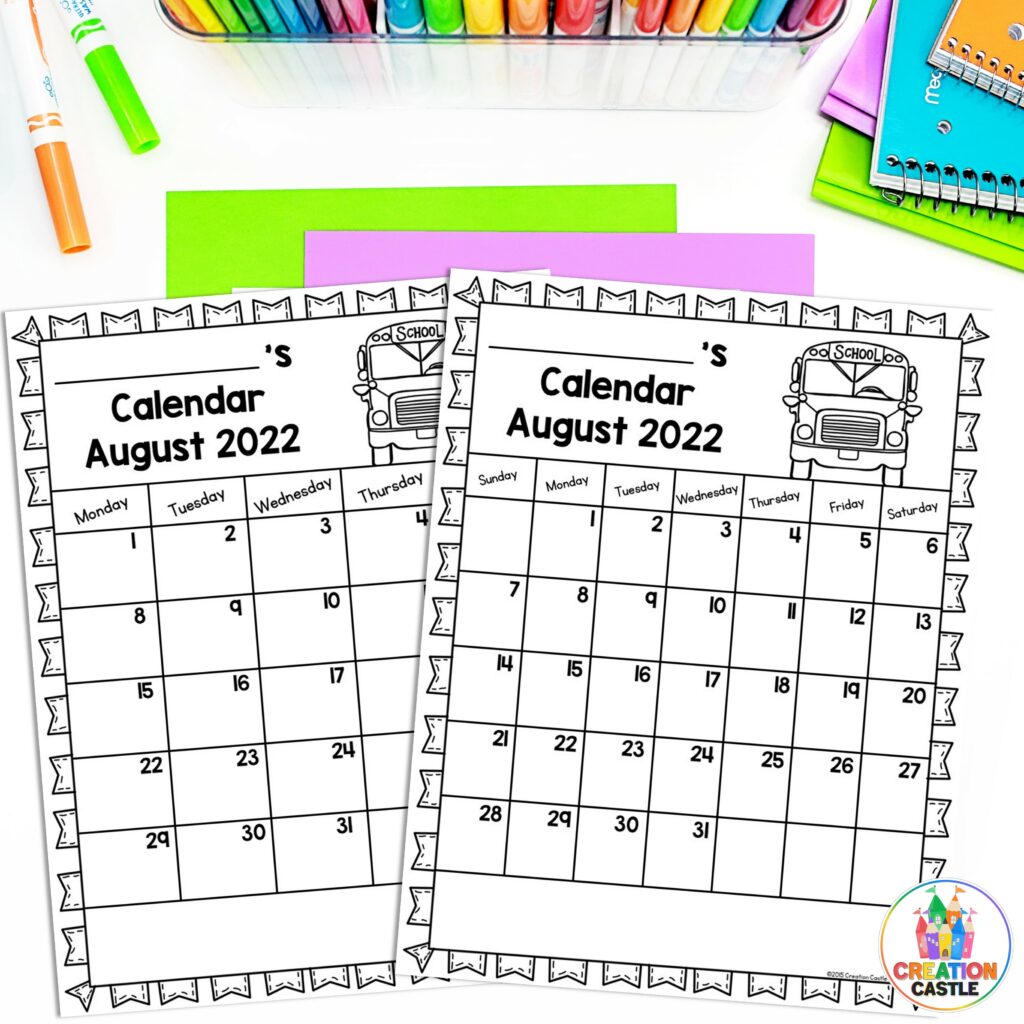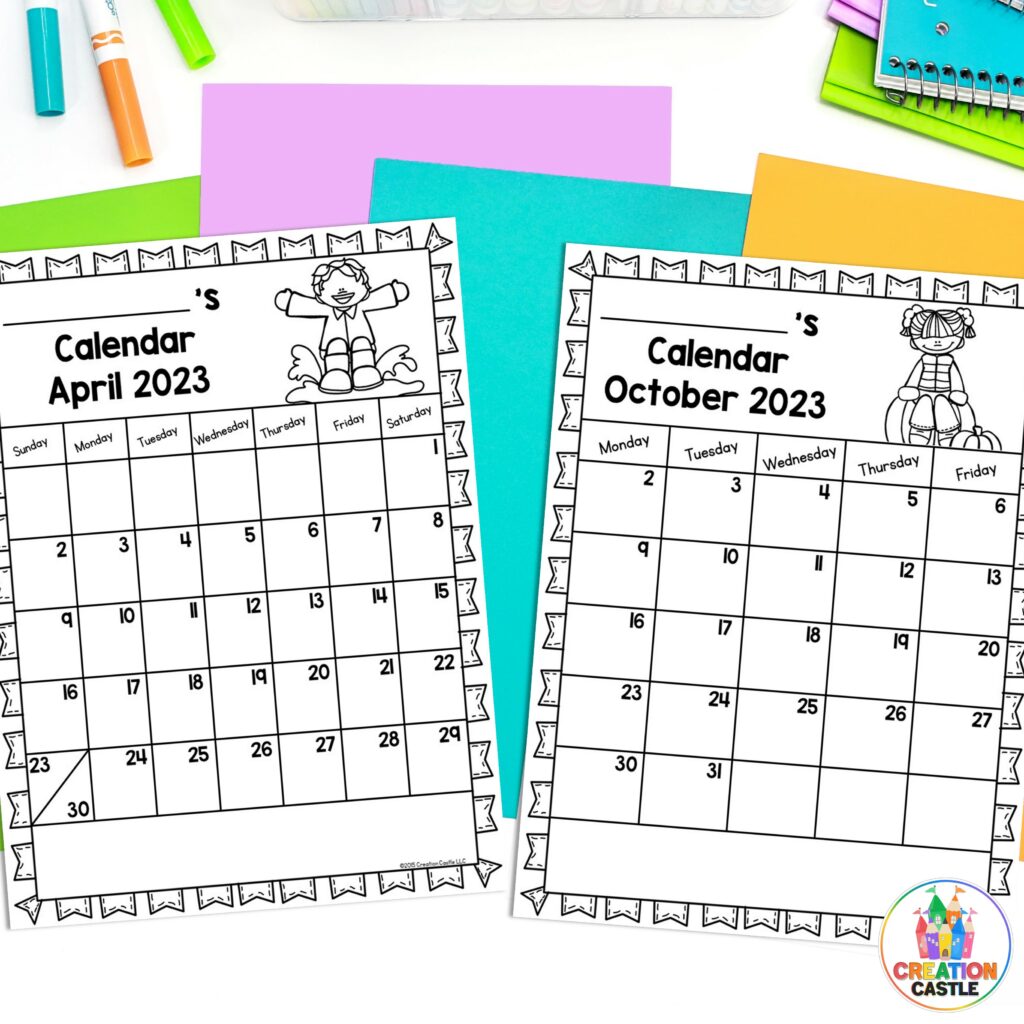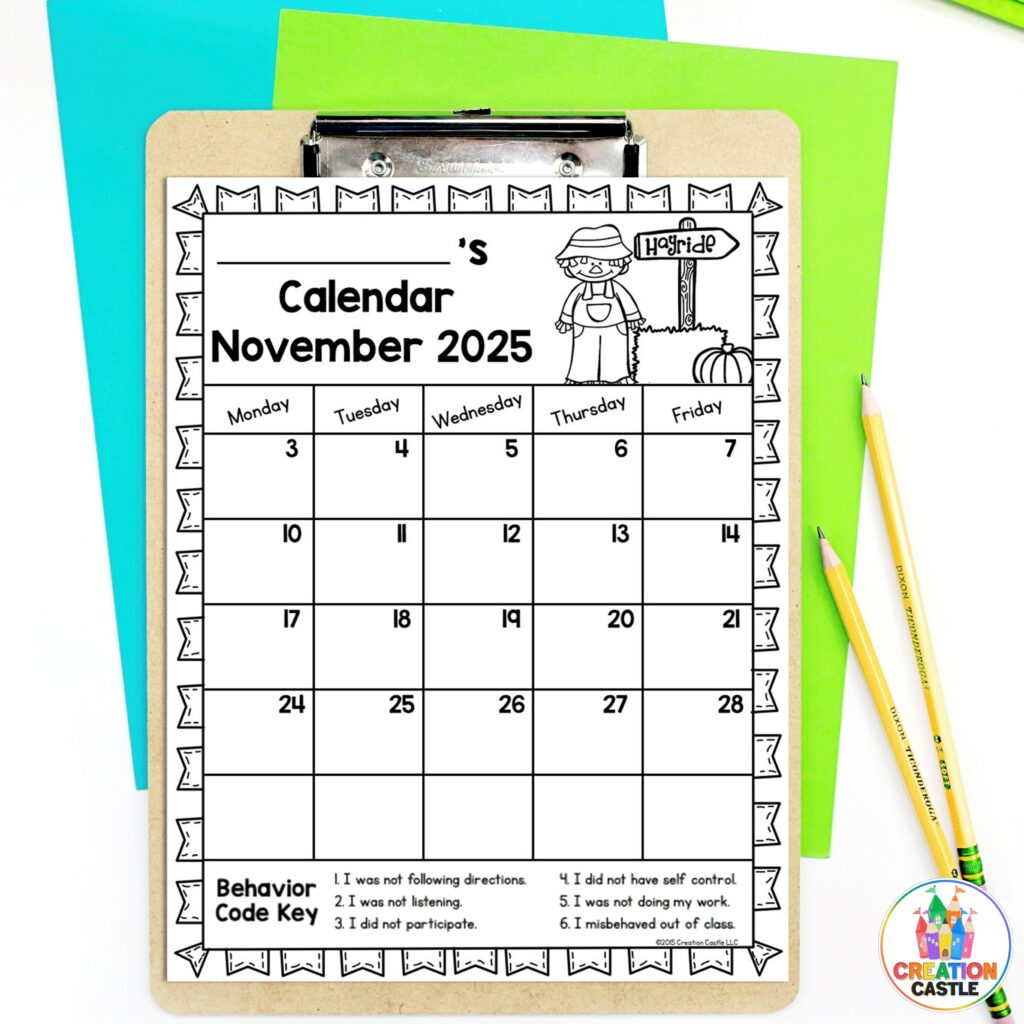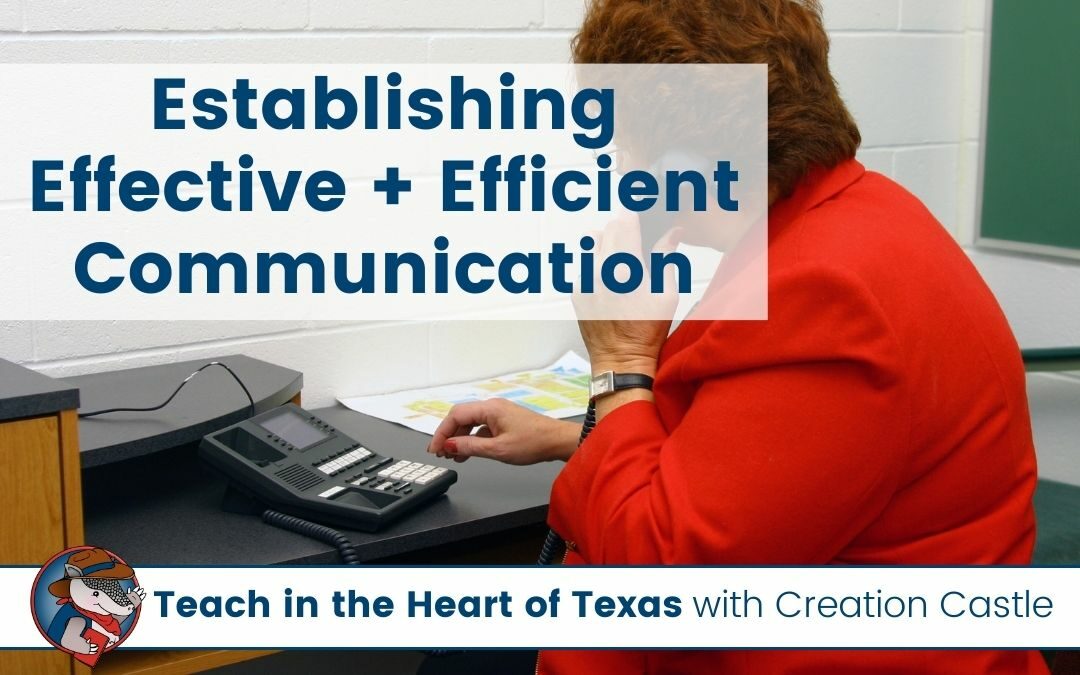Behavior management is always a hot topic. There are some teachers that are strongly against clip charts while others would never dream of getting rid of theirs. Some students thrive on a reward-based system where they earn tickets that translate into prizes. Some schools or districts mandate what tool is used for behavior management. The bottom line is that as long as you are using something that works in your classroom that is great.
I’m not here to convince you one method is better than another. I’m here to talk to you about the importance of communicating behaviors in the classroom to parents. I’ve found the easiest way to communicate daily with your parents about classroom behavior is to send home behavior calendars. I know, I know… this is nothing new. But have you ever considered what your behavior calendars can do for you?

Quick Links
Benefits of Behavior Calendars
Improved Parent-Teacher Communication
Behavior calendars provide a quick and easy way for teachers to share information about what is happening in the classroom daily. Parents can easily see how their child is doing in school and what areas need improvement, both behaviorally and academically.

Increased Accountability
When students know that their choices are being communicated with their guardians, they are more likely to make positive choices and take responsibility for their behavior. The calendar also serves as great documentation for any future meetings about students.
Open Communication at Home
Behavior calendars may make it easier for parents to communicate with their students about the school day. This is especially true if you have the time to jot down something positive or negative that happened during the day. Obviously, you don’t have time to do this every day for every student, but once a week per student would be great!
Making the Behavior Calendar Work for You
So you’ve read this far? Great, because I’m about to get to the part about making this communication tool work for you.
Important Dates
I found that many parents would not look at anything I sent home other than the behavior calendar. They wanted to know that their child was being responsible, kind, and honest at school. They didn’t necessarily want to read every note that came home from the office. I get it. Our lives are busy. But sometimes those notes from the office are important reminders.
I started adding these important reminders to the calendars. Suddenly there were more parents involved in school events. When you provide parents with one central location to find the most important information, you are likely to see a better response.
Behavior Codes

My biggest issue with behavior calendars was always the amount of time and writing that was needed each day. We all know that an entire class with an awesome day of behavior is few and far between. Even filling out calendars for 2-3 students with less than desirable behavior can take 10-15 minutes.
I started using a behavior code at the bottom of my calendar. It saved me hours by the end of the year! My behavior code was unique to our class expectations (as yours should be).
The code outlines specific behaviors that are less than desirable (e.g. I was not following directions.).
Rather than writing “Ralphie had a hard time focusing today and would not follow directions the first time.” I could simply choose the number next to the action on the behavior code and write it on the calendar.
Of course, if there was an incident that required more explanation or if the student had a particularly rough day I would take the time to write a note to Ralphie’s parents.
However, in this case, Ralphie just needed repeated directions all day long. He still had a good day, but I want his parents to remind him to follow directions the first time so we can have a better day tomorrow.
So what am I trying to tell you? STOP! Stop spending so much time writing in behavior folders every day. Stop wasting your time writing about repeated behaviors. Stop working for your behavior calendars and let them work for you!
My editable behavior calendars saved my time and my sanity when it came to parent communication… maybe they can help you too!

Creation Castle
Heather is the author of Creation Castle. She has experience with general education, special education, and ESL students in kindergarten through fifth grade. She specializes in early elementary math and literacy, as well as organization.






